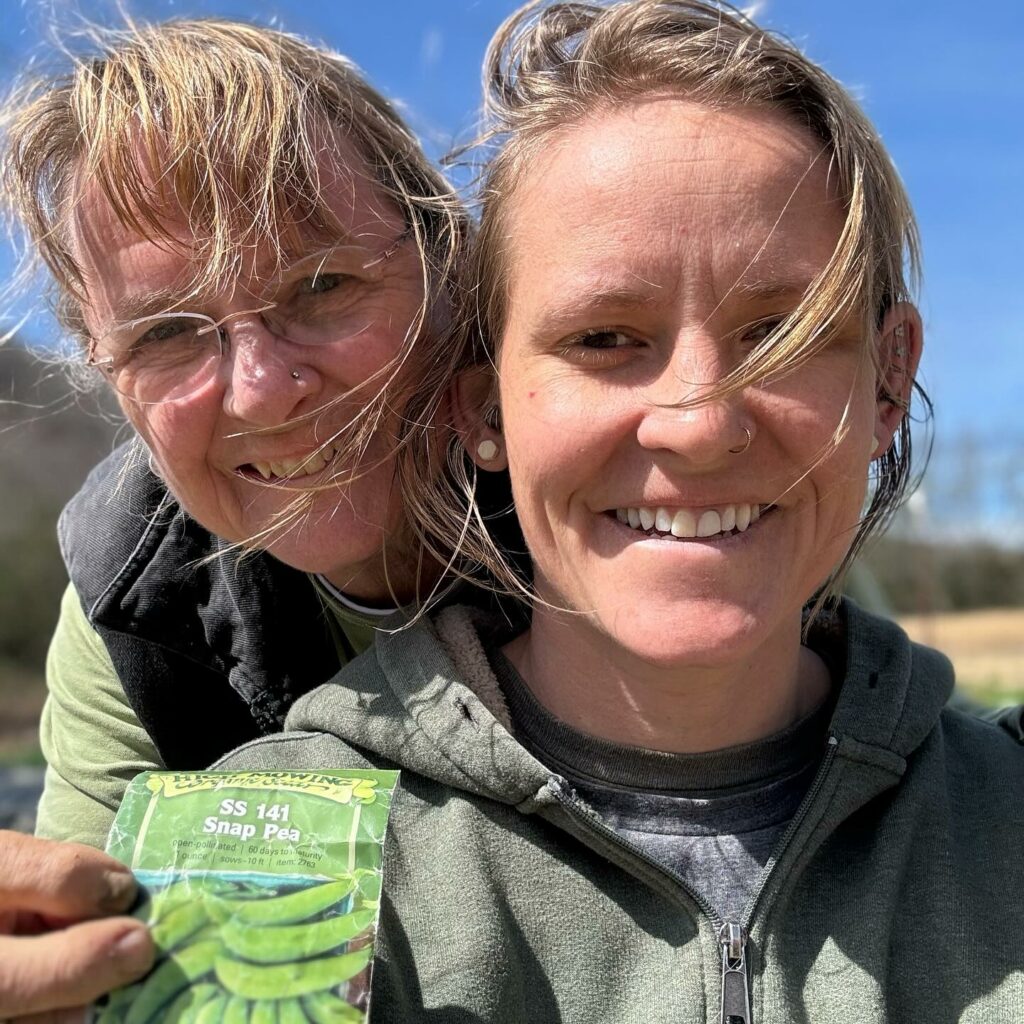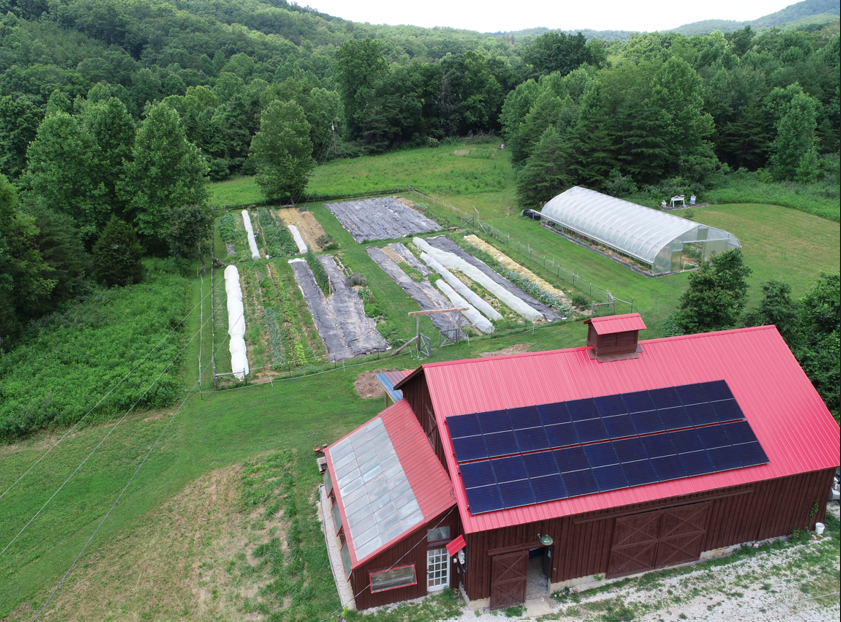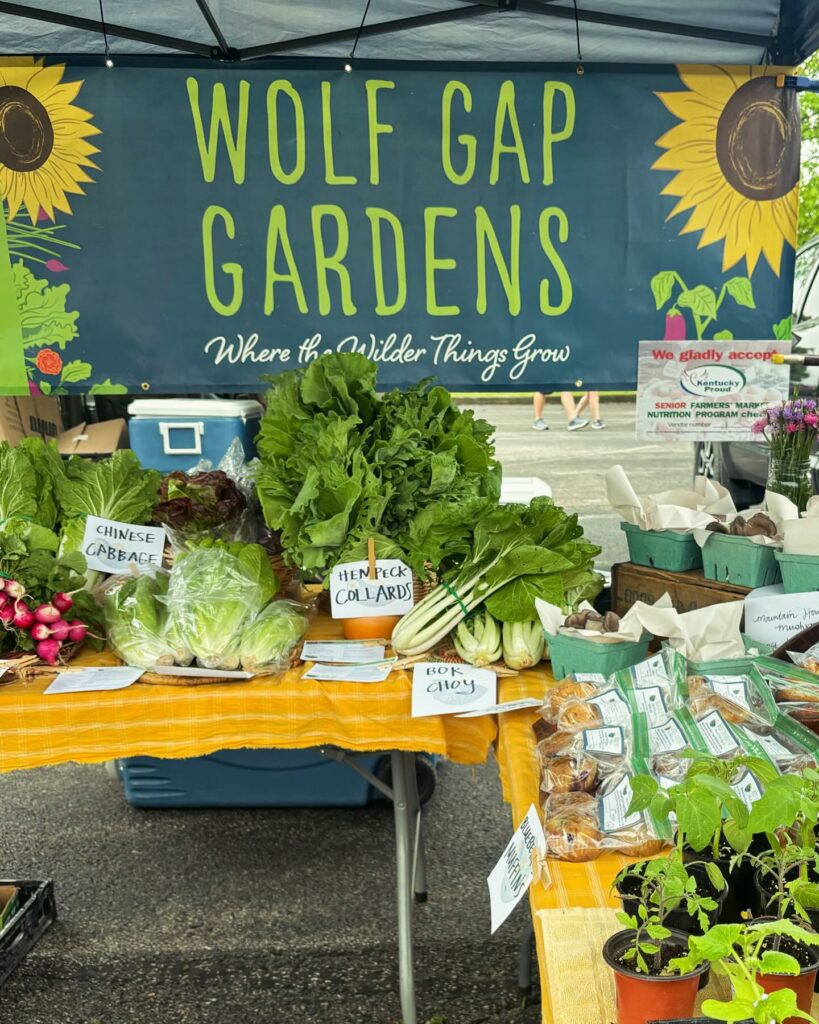Have you ever met someone whose last name truly reflects their life path? I remember once meeting a Dr. Marsh who was working on wetlands restoration. Then, here at the Mountain Association, Josh Bills is our Senior Energy Analyst who has dedicated his career to helping people save on their utility bills. And now I can add the Wilders to my list.

Maggie and Melinda Wilder are a mother and daughter duo who have been farming in Madison County for the past five years. Driving out to their certified organic farm, you pass through beautiful foothills and long stretches of pasture and forested land. When you pull up, you are greeted by their barn – topped with solar panels – and as you walk onto the farm, you realize you are surrounded by a forest.
Melinda recently retired as Director of Natural Areas at Eastern Kentucky University, a position that was a capstone to her 43-year career as an environmental educator. Her research took her on extensive trips to places like Yellowstone and Costa Rica, allowing her to bring those teachings back to Kentucky, and specifically Letcher County’s Lilley Cornett Woods, which is owned and managed by EKU. It’s no surprise in raising her two kids, Maggie and Galen, that they both turned out to be avid outdoorspeople. Galen is a wilderness instructor in Wyoming with NOLS, a nonprofit global wilderness school, and Maggie is a farmer and brewer.
Maggie’s interest in farming ramped up after she joined the PeaceCorps, where she served in Ethiopia and gained even more perspective on how important food security and sustainable farming are. She spent two years as a farm manager in Virginia prior to moving home to Kentucky to farm and work in brewing at Dreaming Creek Brewery in Richmond.

“I love creating and growing things that bring the community together,” she says as she wraps squash stems in aluminum armor to fend off squash vine borers, an alternative to traditional pest sprays.
They use many sustainable farming practices like cover cropping, crop rotation and no-till techniques to preserve soil health. The farm includes a DIY greenhouse and high tunnel with rainwater catchment, and they prioritize pollinator habitat and maintenance of wild spaces.
“We feel very connected to this place, this land and are grateful we can work taking of care of it.”
Maggie and Melinda say that support from programs like Grow Appalachia and Kentucky Highland’s SOAR loan have made their operation possible. The Mountain Association began working with them a few years ago to assist with energy issues. Just for their small farm, winter bills were over $200 per month because of the need to heat their green house, and summer bills were over $150, primarily because of the CoolBot, which takes the field heat out of their produce. These bills were quickly eating into profit for their largely seasonal business.

After completing an energy audit (supported by the Kentucky Office of Energy Policy), we assisted them in applying for the USDA Rural Energy for America Program and the Kentucky Agricultural Development Fund’s on-farm energy grant program, which contributed a total of $18,350 toward a solar installation. Installed in summer 2023, the system is now saving them $580-800 per year.
Beyond the savings, the solar is important to their goals to farm in more regenerative, wilder way.
Believers in paying it forward, the Wilders regularly share knowledge with fellow farmers, hosting field days and teaching workshops. They are also currently hosting a beginning farmer as an intern via Grow Appalachia.
They also love sharing their farm with the community. You can experience the magic of Wolf Gap Gardens at the upcoming TGIF on the Farm on July 12 where they will have light bites, beer, and a farm tour. You can purchase their food (all sold within a 40-mile radius) at the Madison County Farmers Market, via their Community Supported Agriculture or CSA subscription program, or you may even see it on the menu at area restaurants!
Learn more at Wolf Gap Gardens on Facebook.





